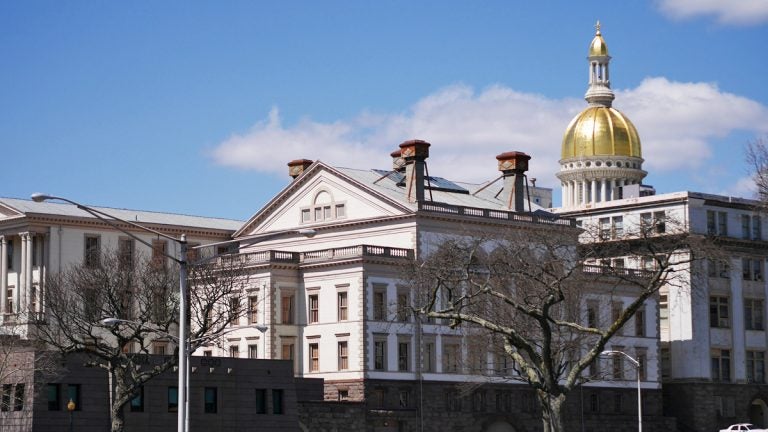Explainer: The legal framework used when NJ takes over a school district

Trenton State Capitol Building (Photo courtesy of Evelyn Tu, file)
New Jersey was the first state in the nation to take over a school district, when it passed legislation in 1987 authorizing the takeover of Jersey City schools the following year. The state went on to take over operations of the Paterson and Newark schools in 1991 and 1995, respectively, and in 2013 it took control of Camden schools.
Background:
The early move toward state takeovers of troubled schools was more about alleged mismanagement and even corruption in these districts, but it also coincided with school and student achievement levels that were among the worst in the state.
Vast powers, wide opposition: The state’s greatest authority is the ability to appoint a superintendent to run the district, relegating the local school board to advisory status.
Those superintendents have often become lighting rods for local frustrations, especially in Newark, where former Superintendent Cami Anderson came under intense fire from local leaders and union activists.
The exit strategy: Even in the early years of the takeovers, the state struggled with how to relinquish controls once things improved. It continues to be the focal point of debate to this day.
Status report:
Jersey City has won back some controls, starting in 2007. Newark in 2014 also regained fiscal controls, albeit limited. Yet by the most part, Newark and Paterson remain under state control after two decades or more; each has challenged the state’s authority in court but they have yet to win back any authority.
New developments: Newark’s state operation took center stage in the summer of 2015, when Gov. Chris Christie announced that he would move toward ceding the state’s control with the appointment of a nine-member panel that would develop a roadmap for the transition.
The caveat: Christie appointed former state commissioner Chris Cerf to take Anderson’s place in the meantime, drawing protests that Cerf has been Anderson’s chief “enabler.”
Measures of success:
Much of the recent debate has been over the state’s current monitoring system, the Quality Single Accountability Continuum (QSAC), and how the Christie administration has used it to retain controls.
Under the system, which is meant to provide an exit strategy, local districts are to be returned controls over the five specific areas of fiscal, personnel, operations, governance and instruction as they reach 80 percent of the benchmarks for each. But even in cases where 80 percent is reached, the Christie administration has kept some controls, arguing that improvements have not been sustained.
Other interventions: In 2007, the state enacted legislation that permits appointment of a fiscal monitor to oversee a school district’s budget, purchasing and personnel practices. The state currently has monitors in seven districts, including one recently appointed in Lakewood.
What’s next:
While the legal challenges haven’t achieved much, political pressure has brought some conciliatory language from the Christie administration, albeit no formal concessions as yet.
State Education Commissioner David Hespe has long said that he believes the exit path needs to be made clearer. And legislators have pressed for revisions in the law that would require returning control to districts when they hit the QSAC benchmarks, rather than being at the discretion of the commissioner.
The historic law:
For the record, here’s the actual statute adopted in 1987:
Title 18A:7A-34. Creation of school district under full State intervention. 1. Whenever the Commissioner of Education shall determine after the issuance of an administrative order that a local school district has failed to assure a thorough and efficient system of education, the State Board of Education may issue an administrative order as set forth in section 15 of P.L.1975, c.212 (C.18A:7A-15) which shall create a school district under full State intervention. The school district under full State intervention shall become effective immediately upon issuance of the administrative order by the State board.
__________________________________________________________
NJ Spotlight, an independent online news service on issues critical to New Jersey, makes its in-depth reporting available to NewsWorks.
WHYY is your source for fact-based, in-depth journalism and information. As a nonprofit organization, we rely on financial support from readers like you. Please give today.




